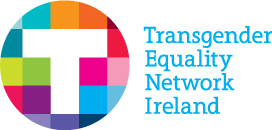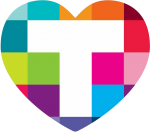TENI
Calling for complete depathologisation of trans identities – Joint statement

Across the globe, trans people lack access to basic, quality trans-specific healthcare. Backlash that attacks existing care hurts real people.
As of June 2022, we mark three years of the formal depathologisation of trans and gender-diverse identities in the WHO’s International Classification of Diseases (ICD-11) and the removal of gender incongruence from the list of mental disorders. Since then, remarkable strides forward have been made, such as in Malta, where trans and gender diverse identities have been depathologised at the national level and gender-affirming healthcare has been made more accessible. While other countries are in the process of revising their national gender-affirming healthcare protocols and guidelines, in large part thanks to the sustained activism of the trans and gender-diverse community, access is disparate and regularly enforces pathologising requirements that enable institutional violence within medical settings and deny trans and gender diverse people the right to make autonomous decisions about their own bodies.
Despite these significant developments, across the globe, major challenges exist for trans and gender-diverse people’s access to basic, quality gender-affirming healthcare. The ongoing anti-rights backlash affects existing healthcare protocols and impacts the health and wellbeing of our community.
In many parts of the world, accessibility of gender affirming healthcare is still contingent on a mental health diagnosis. Although it has been three years since the ICD-11 came into force, most countries worldwide have not taken up the task of reforming their gender-affirming healthcare protocols and guidelines in-line with the new classification system. The process of translating the ICD-11 into regional languages is still ongoing. In the meantime, older versions of the coding manual which pathologised trans and gender-diverse identities and access to healthcare are still being implemented.
At the same time, trans and gender diverse identities and individuals are coming under increased attack from many anti-rights campaigners, such as conservative political actors, religious groups, and gender-critical “feminists”. These actors target, among other things, the right to self-determination of gender identity and gender-affirming healthcare for trans and gender diverse individuals, which has already resulted in significant consequences in the access to healthcare for trans and gender-diverse adults, and to the much needed social and emotional support for trans and gender-diverse children. Trans and gender-diverse children are especially vulnerable, as their physical and mental healthcare needs are coming under fire as these attacks lead to the re-pathologisation of gender-affirming healthcare. Over the last two years, countries such as Sweden, Finland, parts of the United States, and the United Kingdom have taken steps to roll back access to puberty blockers for children, and anti-trans narratives are inhibiting the progress of depathologisation. It is imperative for us to combat misinformation, work together with a diverse set of allies, and advocate strongly for a healthcare approach that respects and promotes the human rights of trans and gender-diverse adults and children.
Therefore, on this Trans Depathologisation Day, we invite our communities and our allies to come together and support our call for complete depathologisation of trans and gender-diverse identities.
We call on governments to reform national gender-affirming healthcare protocols and guidelines in-line with the classifications in the ICD-11.
We call on governments and donors to invest in the education and training of healthcare professionals, and to decentralise access to gender-affirming healthcare.
We call on governments to urgently improve the quality, access, and availability of gender-affirming healthcare and coverage to relieve the financial burden upon our community, in line with the WHO call for Universal Health Coverage (UHC) and the Sustainable Development Goal 3 to “Ensure healthy lives and promote well-being for all at all ages”.
We call upon our allies publicly declare your support for trans and gender-diverse communities, to join with us in our efforts to counter the anti-rights movement, and to use your influence with stakeholders and State actors to engage them in ensuring the critical survival of our communities.
Our vision is the right to the best attainable healthcare for everyone to be practical and effective: access to self-determined gender-affirming healthcare for everyone who needs it, irrespective of who we are, or where we come from.
- The signatories of this Statement (listed here) are organisations representing trans and gender-diverse people on the national, regional, and international level.
This joint statement was developed by GATE, ILGA World, and TGEU on the International Day of Action for Trans Depathologisation.

